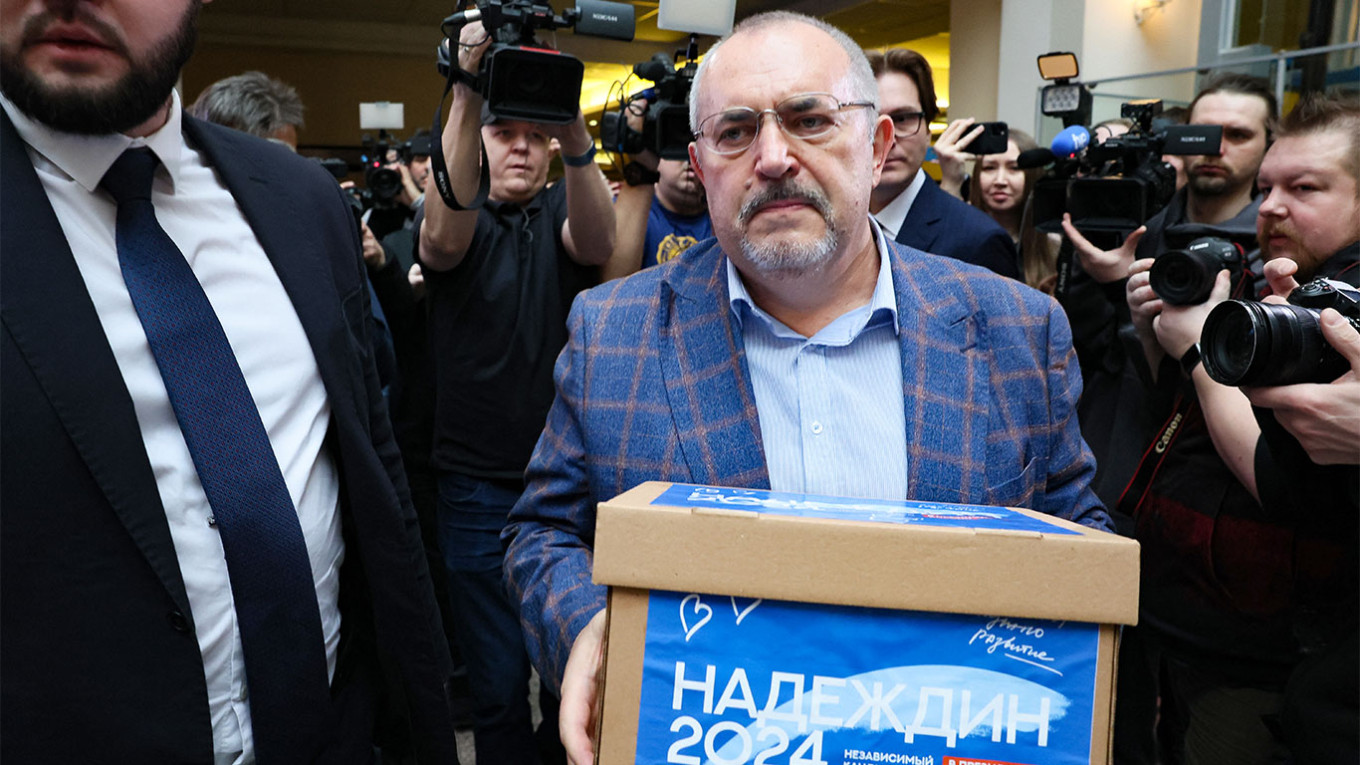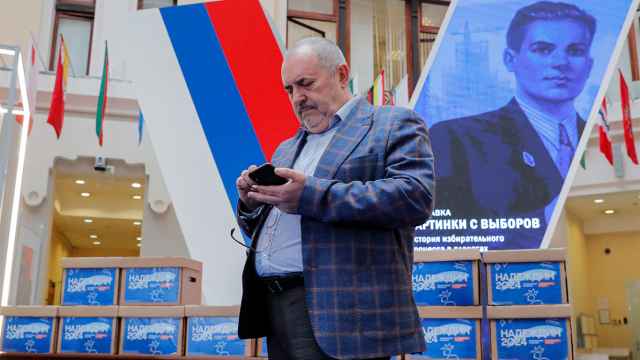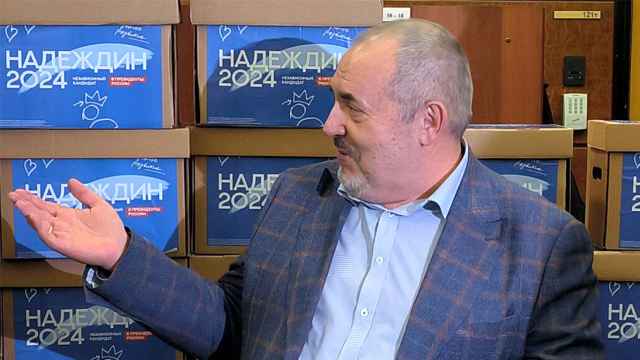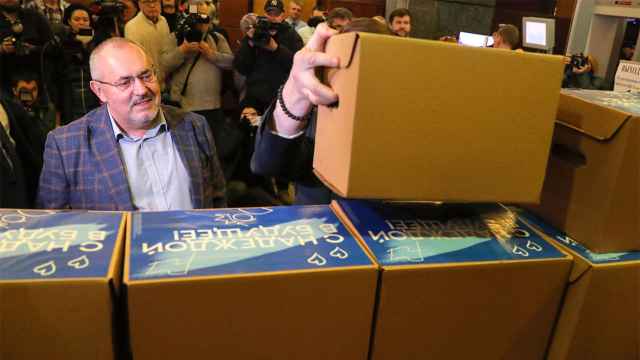Russian election authorities said Friday that signatures of endorsement for anti-war presidential hopeful Boris Nadezhdin included “dead souls,” thus appearing to set the stage for his disqualification from the race.
Nadezhdin, who has emerged as the presidential election's leading pro-peace voice, said Wednesday he had submitted 105,000 signatures to the Central Election Commission (CEC) for review.
Russian election law requires potential candidates running from a party without representation in parliament to collect 100,00 signatures of endorsement.
“There are errors [in Nadezhdin’s signatures] that elicit surprise,” CEC deputy chief Nikolai Bulayev was quoted as saying by the state-run news agency TASS.
“When we see dozens and dozens of people who are no longer alive leaving signatures, the question arises about the purity of ethical norms, including by signature collectors,” he said.
“To some extent, the candidate is directly involved,” Bulayev added.
Bulayev noted that the CEC verifies the signatures with Russian law enforcement and other government databases.
Nadezhdin saw a surge in popularity last month as long lines of Russians both at home and abroad formed at his campaign's offices to endorse his election bid.
But some observers doubt that authorities will allow him to run for president despite his campaign's highly visible signature collection drive.
Bulayev said the CEC plans to invite Nadezhdin to one of their sessions on Monday to show the errors found in his signatures.
A final list of registered presidential candidates is expected on Wednesday.
President Vladimir Putin’s campaign last week submitted 315,000 out of the 300,000 signatures required for independent candidates not running from any party.
Putin, 71, is widely expected to win his fifth overall term in office.
A Message from The Moscow Times:
Dear readers,
We are facing unprecedented challenges. Russia's Prosecutor General's Office has designated The Moscow Times as an "undesirable" organization, criminalizing our work and putting our staff at risk of prosecution. This follows our earlier unjust labeling as a "foreign agent."
These actions are direct attempts to silence independent journalism in Russia. The authorities claim our work "discredits the decisions of the Russian leadership." We see things differently: we strive to provide accurate, unbiased reporting on Russia.
We, the journalists of The Moscow Times, refuse to be silenced. But to continue our work, we need your help.
Your support, no matter how small, makes a world of difference. If you can, please support us monthly starting from just $2. It's quick to set up, and every contribution makes a significant impact.
By supporting The Moscow Times, you're defending open, independent journalism in the face of repression. Thank you for standing with us.
Remind me later.






